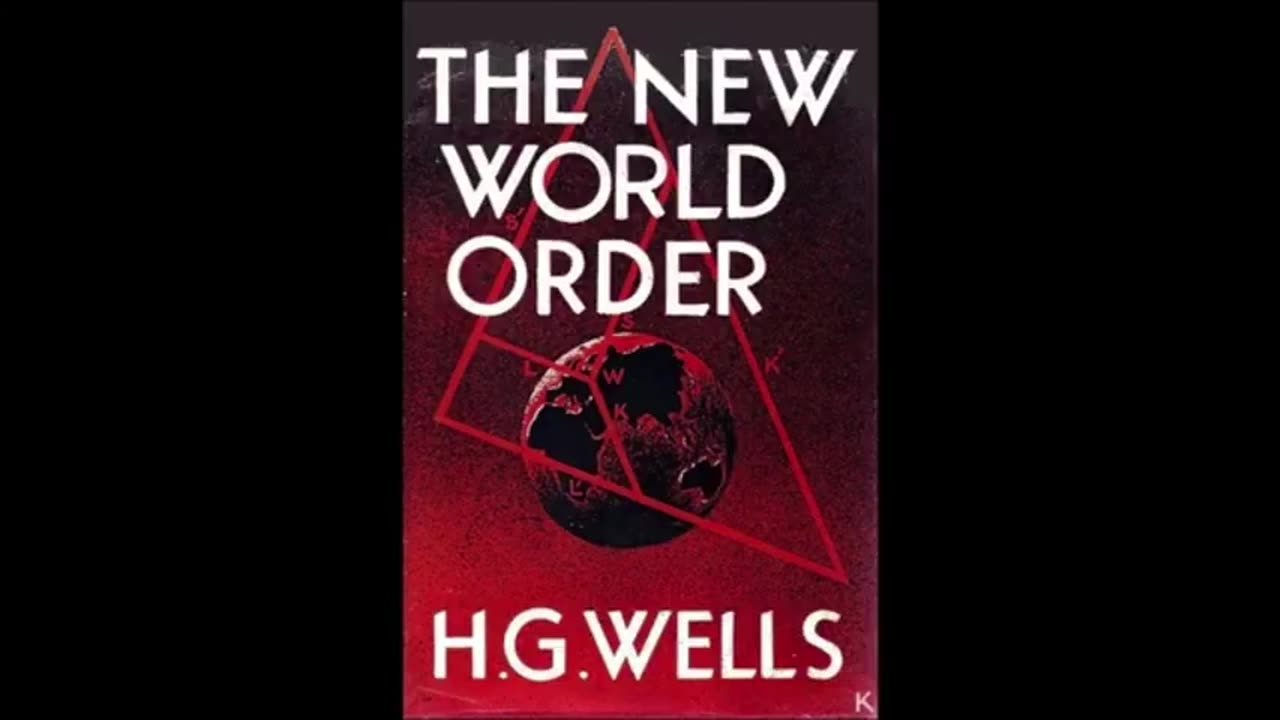Premium Only Content

The New World Order by: H.G. Wells
"The New World Order" (1940) by H.G. Wells is a non-fiction work in which Wells lays out his vision for a future global government. Written during the turmoil of World War II, Wells argues that the only way to achieve lasting peace is through the establishment of a single world state. This new world order, according to Wells, would transcend national boundaries and create a unified government responsible for maintaining global peace and security. Wells advocates for the end of sovereign nation-states, which he views as obsolete and a source of conflict. Instead, he envisions a federal world government that would manage international affairs, disarmament, and social justice.
The book reflects Wells’ deep belief in progress, rationalism, and the potential for human society to evolve beyond its current limitations. He outlines the structure of this global government, which would be guided by a rational elite committed to the common good. Wells' vision includes the idea of a universal education system and the spread of a common language to foster global unity. While the book was intended as a serious proposal for a peaceful future, the term "new world order" has since become associated with various conspiracy theories that allege secret societies are working towards such a global government.
About the Author: H.G. Wells
Herbert George Wells (1866–1946) was an English writer best known for his science fiction works, including The War of the Worlds, The Time Machine, and The Invisible Man. A prolific author, Wells wrote in various genres, including social commentary, history, and politics. His works often explored themes of technological advancement, social reform, and the future of humanity.
Wells was a member of the Fabian Society, a socialist organization dedicated to the promotion of social justice and reform through gradual and democratic means. The Fabian Society played a significant role in the formation of the Labour Party in the UK. While Wells was not confirmed to be a member of any secret societies, his involvement with the Fabian Society and his advocacy for a global government in works like The New World Order have led some to speculate about his influence on ideas associated with globalism and the role of intellectual elites in shaping society.
-
 12:04:58
12:04:58
Deus Meum Que Jus
12 days agoCompendium of Occult Laws by: Dr. R. Swinburne Clymer
445 -
 8:43
8:43
Shea Whitney
14 hours ago15 Best *WEARABLE* Fashion Trends of 2025!
601 -
 47:44
47:44
CarlCrusher
13 hours agoUFO Psionic Contact Among Ancient Artifacts and REAL Dinosaur Tracks
213 -
 8:30
8:30
Gun Owners Of America
15 hours agoWe're Taking New York BACK To The Supreme Court
659 -
 1:01:50
1:01:50
SternAmerican
15 hours agoThe Nunn Report Election Integrity w/ Guest Steve Stern and Sam Anthony!
341 -
 8:01
8:01
BlackDiamondGunsandGear
6 months agoNew Canik Mete MC9
619 -
 1:00:02
1:00:02
PMG
16 hours agoJFK, War, & Health with Fox War Correspondent Hollie McKay
1921 -
 2:37:51
2:37:51
Badlands Media
1 day agoDevolution Power Hour Ep. 338
110K39 -
 2:55:33
2:55:33
FreshandFit
8 hours agoAfter Hours w/ Stirling Cooper & Girls
60.2K60 -
 3:05:36
3:05:36
TimcastIRL
10 hours agoDHS Vows To HUNT DOWN Leftist Terrorists Amid SWATTINGS & Tesla TERROR w/Peter St Onge | Timcast IRL
244K178